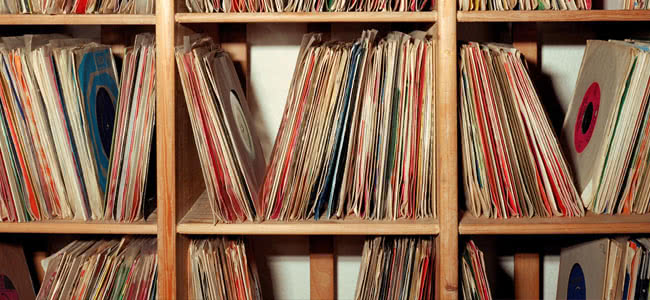While it’s conventional wisdom that we know next to nothing about music that came before the advent of musical notation, with old war songs and tribal chants lost forever to time, it may come as a shock that recordings by artists whose music is still covered today and that was recorded less than a century ago are just disappearing off the face of the earth.
Most readers are likely familiar with Huddie William Ledbetter, better known as blues icon Lead Belly, the King of the Twelve String Guitar. His treasured music, which dealt with themes like racism and politics, has been covered by the likes of Elvis Presley and Nirvana, cementing his place as a music legend.
But as Vox reports, many of Lead Belly’s original recordings simply no longer exist. The tapes that held his last recording sessions could not be saved after the oxide on the top of the record fell off, rendering it unplayable. As conservators were not able to get to them earlier, these songs are lost forever.
And it’s not just Lead Belly’s recordings that are at risk of disintegrating out of existence. Before the rise of digital technology, recording was done on reels, with each reel bearing a different section of a song. The reels were then spliced together using tape, with some of the original tapes now stored in several collections at places like the Smithsonian Museum in the US and Australia’s own National Film & Sound Archive.
“You can only imagine what has happened to these pieces of tapes,” Jeff Place, an archivist for the Smithsonian Center for Folklike and Cultural Heritage told Vox. “Over time, every one of those tape breaks is going to break, and it’s going to take an hour to transfer three minutes of a recording into a digital format where we can store it. So there are albums that take a whole day to save.”
[include_post id=”418835″]
Place’s job as an archivist is to save precious sounds — not only music, but old radio broadcasts, oral histories, and spoken word recordings — like the lost Lead Belly recordings, by whatever means necessary, so that recordings from 50 years ago sound as clear as they did when they were made and sometimes even better.
This requires preserving the original recordings in the best possible condition, and for many albums, transferring the sound of the original recording to a digital format that will be easily accessible in the future.
“LPs don’t need much. It’s a very stable format, so long as you don’t abuse it by exposing it to heat or something like that,” said Matthew Barton, the curator of recorded sound at the Library of Congress. “Things like wax cylinders and tape are different stories.”
And it’s these obscure formats that archivists worry will someday be lost for ever. Barton explains that a recording by a 1940s bluegrass mandolinist recently posed a problem as it was recorded on a lacquer disc, which are prone to separating – the recording of the sound on the outer layer begins to peel away from the disc that makes it playable.
Believe it or not, the internet is also posing a problem for sound archivists, who are at something of a loss when it comes to figuring out how to go about archiving YouTube or SoundCloud. With no way to determine what might be significant decades into the future or how long a song’s shelf life is online, the digital age has made sound archiving even more of a race against the clock.




































